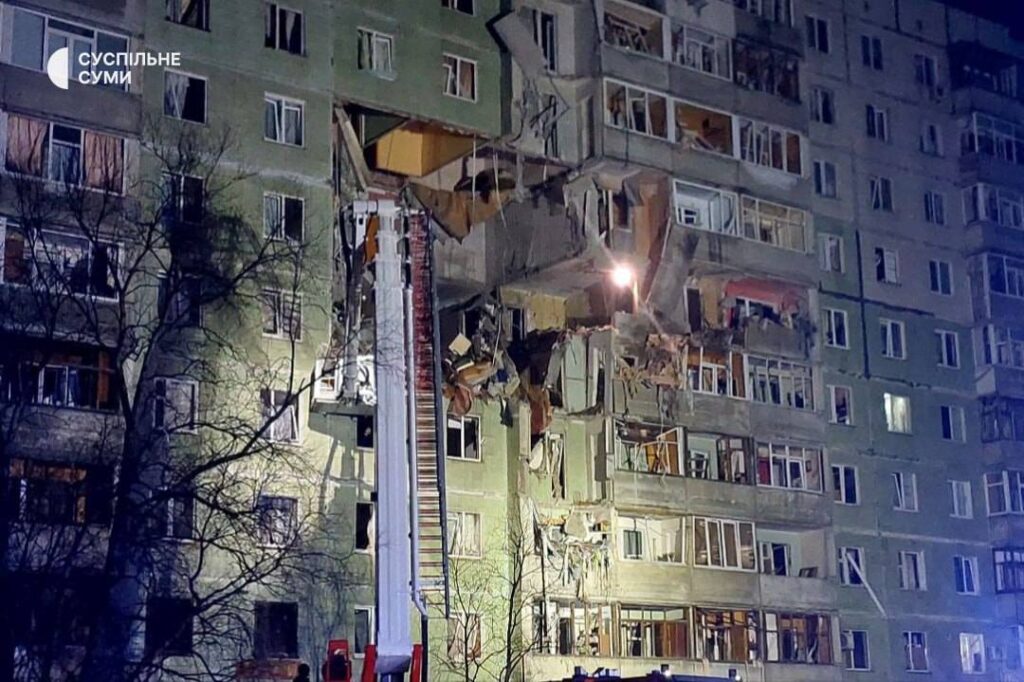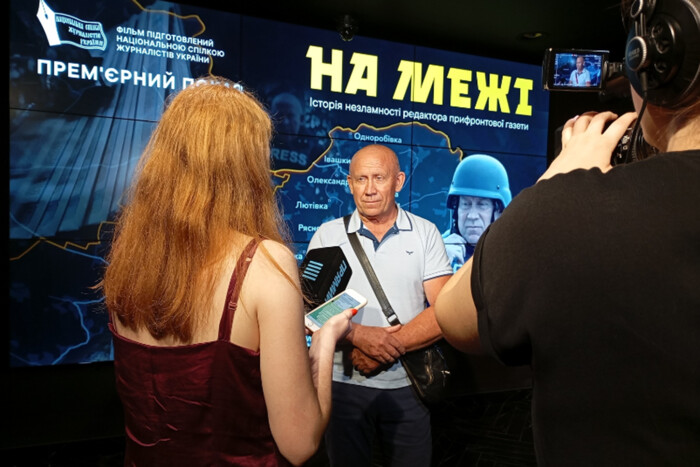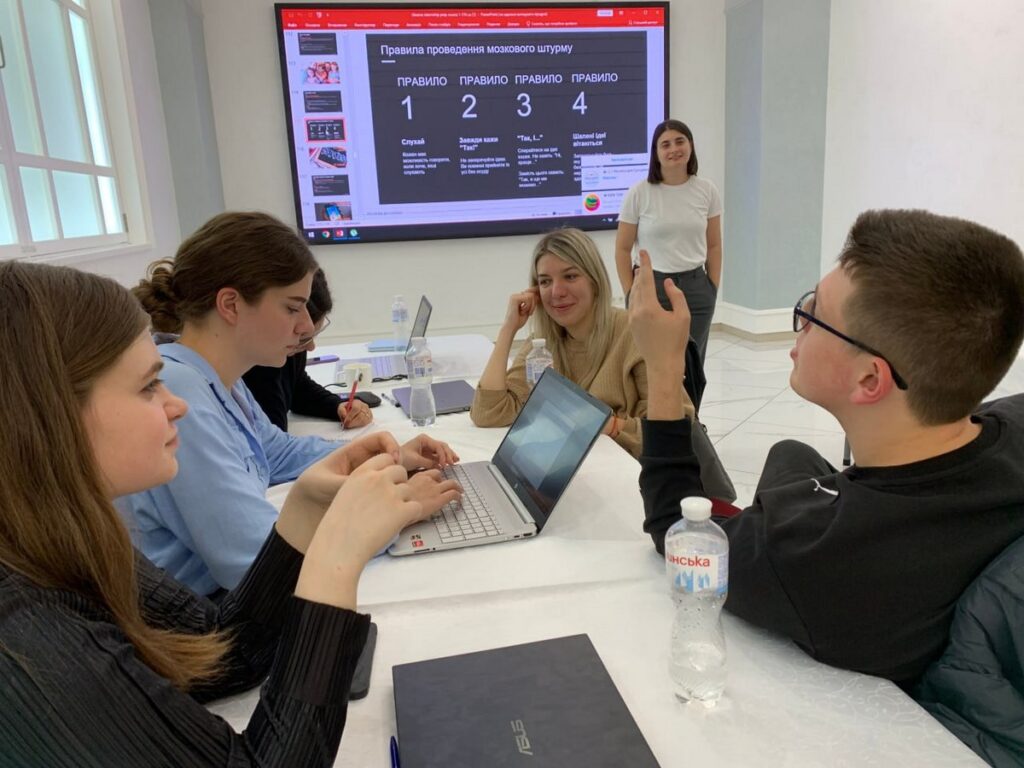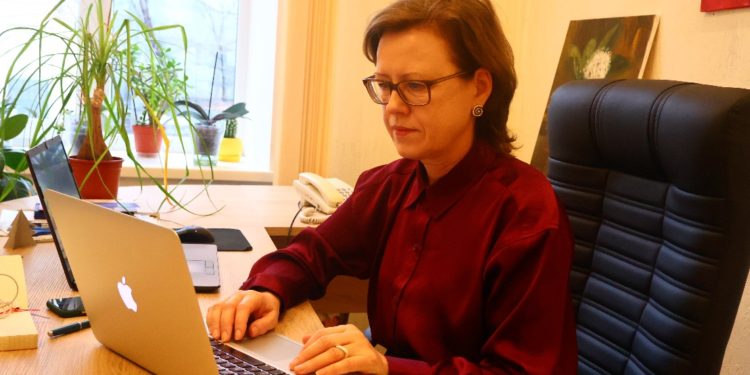The First Secretary of the National Union of Journalists of Ukraine (NUJU), Lina Kushch, emphasized at an expanded meeting of the NUJU board that the experience of overcoming last year’s difficult challenges helped to develop the main priorities for 2025.
Among them, the safety of media workers comes first. Both those working on the front line of hostilities and journalists from front-line areas have to live and work under shelling.
Relocation has become vital for newsrooms in Pokrovsk, Myrnohrad, Velyka Pysarivka, and other towns.
Security issues also directly affect the NUJU Centers of Journalistic Solidarity. Their coordinators, for example, in Zaporizhzhia and Kharkiv, are forced to restructure their work: hold events online or work in shelters, given the constant shelling. The situation is the same in Sumy. During my recent trip to this city, communication with Sumy journalists and holding a conference took place in a shelter to ensure the continuity of work and the safety of media workers.
Unfortunately, there are more and more reports that journalists’ homes or media offices have been damaged by shelling. There are serious reports of media workers being killed or injured.

This year, the NUJU will continue to pay attention to security issues in all their aspects, in particular, from energy security to energy independence. We will conduct training sessions on first aid and meetings with experienced journalists who work in combat zones and can provide useful advice on the safety of media workers.
The NUJU, together with the centers of journalistic solidarity, held the final event called Lessons 2024. Together with practicing journalists, we discussed a wide range of problems and challenges faced by media workers in different regions. We also discussed the use of drone detection detectors for journalists, planning trips to high-risk areas, and gave practical advice that will help in our work. Constantly working with new challenges, and we are constantly looking for ways to overcome them.
Within the framework of the network of Journalists’ Solidarity Centers, we have defined rules in the event of an aggravation of the security situation: we hold events in safe places or online. The coordinators and co-coordinators of the centers, as well as the NUJU team, confirmed their certificates in providing first aid. It can be stated that each event is accompanied by a participant who can professionally provide first aid. And these are the realities in which we have to work. Some regional organizations are also working on security issues. Just one example of many: the Vinnytsia regional organization conducted training at the Vinnytsia Military Hospital for local journalists with a detailed consideration of theoretical and practical aspects of security.
The key priorities that have been and remain are the protection of freedom of speech and solidarity with imprisoned journalists. Significant events for the journalistic community were the release of Nariman Celal [Dzhelal] and Maksym Butkevych, who were illegally held in russian captivity.
The NUJU is intensifying advocacy for the release of media workers from captivity, and we will continue to monitor violations of journalists’ rights. Over the past year, powerful events have been organized both in Ukraine and abroad. We will continue to work in this direction.

The restoration of Ukrainian media is vitally important. The NUJU actively helps local newsrooms in front-line territories, resorting to various forms. One of them was, for example, the film called On The Edge, created by our Union about the work of the newsroom of the newspaper Zoria from Zolochiv, and the editor of the publication, Vasyl Myroshnyk, who delivers the newspaper to readers in his car. The film was shown both in Ukraine and abroad. The film is striking in the courage of Ukrainian journalists. When I presented a short version of the film at the Council of Europe, where there were representatives from over 100 countries, the head of the Estonian Journalists’ Union approached me. She said that in their country, there is a discussion about supporting print media, and there are a number of experts and politicians who are against providing assistance to newspapers. And the film On The Edge can become an argument in favor of the print press for the Estonian audience. This is very important in the face of challenges from an unfriendly country that borders Estonia and has unleashed armed aggression in the territory of Ukraine, said the Estonian colleague. Education and development are an important area of the Union‘s work. Firstly, journalists who have experience in the profession need new knowledge and advanced training. Secondly, this makes it possible to attract young journalists and students to the Union. Therefore, there is a great demand for training in writing grant applications, fundraising, and project management. To meet requests within the network of Journalists’ Solidarity Centers, Volodymyr Pavlovych Bober prepares a weekly selection of grant opportunities, which is sent through the Centers to all regional organizations of the Union for use. Although it must be admitted, there are shortcomings in this issue because journalists from some regions report that they do not receive offers.
If we talk about supporting young journalists, the Union has established cooperation with faculties and departments of journalism in various regions. The project with the Vasyl Stus Donetsk National University, which is now operating in Vinnytsia, was successful. Ten university students completed a three-month internship in leading Ukrainian media. Successful examples of internships inspire both young journalists and newsrooms, revealing the potential for future cooperation.

An important nuance: the coordinators of the Journalists’ Solidarity Centers keep in touch with students who left the occupied territories and are actually victims of armed aggression; they prepare materials about their experiences. There are regional organizations that also involve students in active work.
Thanks to partnerships with international organizations, we expand the capabilities of the Union members. We provide truthful information about the work of Ukrainian journalists in the most difficult conditions. Thus, the attention of the international community to the events in Ukraine falls against the background of other phenomena taking place in the world. However, we continue to maintain interest in providing an international helpline for Ukrainian media professionals. But now we have to work three times harder to get half as much.
The organizational development of the Union, updating internal and external communication channels, and strengthening feedback are of great importance. Therefore, it is important to simplify the work of regional branches thanks to modern digital tools, including an online application form for new members to join the Union. Regional organizations are ready to implement new tools for more effective work. I thank everyone for their work despite the difficulties and challenges of today.
Together, we can do a lot. We have the strength and inspiration, the desire to implement changes and overcome challenges.
Speech at the expanded meeting of the NUJU Board, which was held online on January 23, 2025, with the participation of more than 50 members from all regions of Ukraine. The Board unanimously supported the priorities of NUJU for 2025. Key areas: protection of journalists and freedom of speech, systematic assistance to regional and local media, solidarity with imprisoned colleagues, development of a network of Journalist Solidarity Centers, and strengthening international cooperation.
Liudmyla Maznova

 THE NATIONAL UNION OF
JOURNALISTS OF UKRAINE
THE NATIONAL UNION OF
JOURNALISTS OF UKRAINE
















Discussion about this post